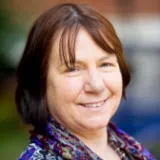Please note: this event has passed
This Social Work History Network webinar concentrated on social work activities in the 1990s where some specialist services were emerging but there was still much stigma and fear of the infection.
Opening the webinar, Prof Jill Manthorpe spoke of the importance of seeing if there was learning from this period – a time when the global spread of the infection was becoming apparent and its impact on the global South was emerging as so serious and a time when social work had to learn much about infections, transmissions and symptoms.
The first speaker, Maria Brent from the University of Kingston, spoke of her experiences as a student undertaking her practice placement in a day centre for people with AIDS/HIV and what she had learned about person-centred values and work in this placement. The second speaker Prof Liz Walker from the University of Hull reflected on her voluntary social work activity in South Africa where the context of political change included a massive rise in the numbers affected by AIDS/HIV.
Our third speaker, Prof Richard Harding, from King's College London, spoke of the profound influence on his life and work of social work practice with people with HIV/AIDS and current research on the subject which had become very clinical, despite the need for a person-centred approach as expressed by people living with the condition. He recalled that many times he had had to pretend to be a family friend rather than declare he was a social worker for people with AIDS/HIV – such was the level of fear and stigma. Currently, while there was treatment in the UK, the symptoms could be extensive and as people are growing older with the condition they are now facing new complications from the presence of other conditions or illnesses.
Discussion, led by Dr Carl Purcell of the Unit, explored the experience of others working in social work practice at that time and how ring-fenced services had perhaps reduced the contact of local authority social workers with people living with the condition. Others observed that current social work education seemed to pay little attention to AIDS/HIV. The meeting closed with thanks to the informative and inspirational speakers who had provided vivid and thoughtful recollections of this under-reported part of social work history in the UK, but as one participant noted, it was still a major part of social work in other countries. The webinar was attended by 26 participants.
SWHN Chair, Dr David Jones, reminded participants of forthcoming events and how joining the SWHN mailing list would ensure details of future events and access to the SWHN Bulletin.

